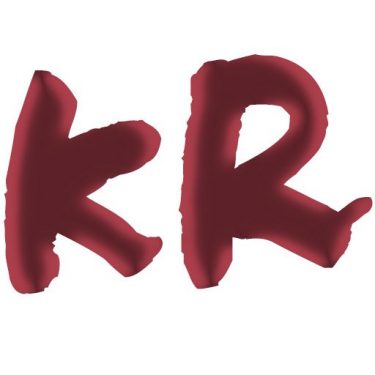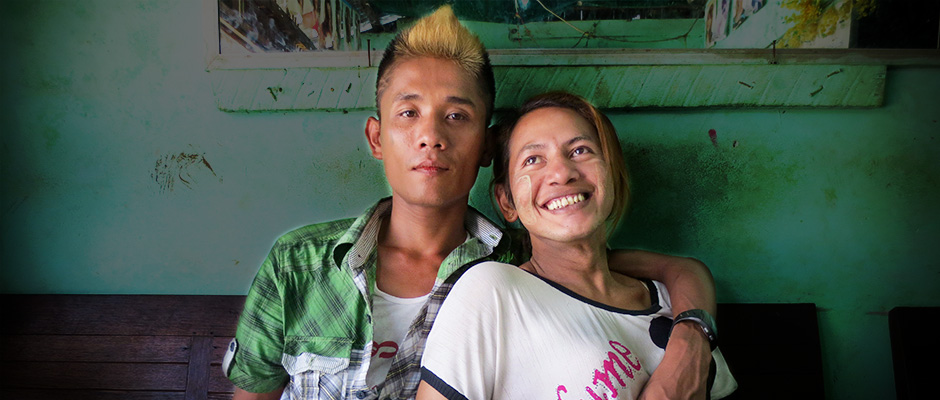While opens are subject to oppression, in particular, police harassment and abuse within the legal system, the state is rarely a central concern in their everyday lives. 1 Often, the more immediate causes of violence, shame and anguish for opens take place within the family. It is within the family, and in childhood, that the non-masculine male informants I have interviewed in recent fieldwork in Myanmar typically start their life narratives of experiencing often-violent reactions from members of the household. In part, this relates to the gender hierarchy within Burmese cultural systems. For opens, an association with femininity results in a loss of social status as men, who are seen as being structurally superior to women in regard to “authority” (awza) and “charisma” (hpoun). 2 Awza is associated with political authority, while hpoun is associated with moral and religious power. In Burmese Buddhist culture, one’s store of hpoun is seen as being determined by karma through the accumulation of merit in past lives. Since men are considered to have greater hpoun, this notion of symbolic power supports a Buddhist cosmological view of male superiority to women. For a male to shift from a masculine to a feminine subject position is seen to reduce his hpoun, resulting in a diminishment of personhood and a loss of respect. The change in subject position also creates a problem for a family’s social status, since that status is regulated by the rules of anade.
Anade is a regulatory framework that governs interpersonal interaction in Myanmar. Anade denotes deference and entails the avoidance of speech or actions that might be considered to cause discomfort or distress for others. Anade, or the culture of deferential respect, is a problem for trans Burmese because it is fundamentally gender normative and involves the positioning of opens as inferior within heteronormative Burmese society. As a key institution for cultural transmission, the Burmese family unit plays a major role in acculturating norms of anade in trans children, who suffer as a result. From a young age, children are taught to obey and support their parents. In the dominant storyline of a family with a trans child, a key preoccupation of the father is to save face when confronted by a son who fails to conform to masculine norms. This loss of face stems from public ridicule the family suffers from having a trans child. However, the Burmese father is further impacted because the trans status of his child is seen as reflecting poorly on his awza, that is, his masculine “authority” to govern the family unit by preventing and correcting any transgressions. In this schema, awza involves ruling through consent and anade involves force.
For example, Chit Chit, an informant who used to live with her parents in a Yangon satellite town, began opening, or presenting as feminine, when she was a teenager. Her father initially tried to use his influence to goad Chit Chit into being gender normative. When this did not have the desired result, Chit Chit’s father resorted to using corporal punishment, which also did not have the intended effect. Chit Chit’s subsequent exit from her family then impacted her father’s awza authority, which is linked to notions of masculinity. The loss of face a father suffers when a male child opens as feminine can be experienced as emasculating and explains the sometimes-violent reactions of fathers towards trans children.
Oppressive family dynamics are also exemplified in the story of Lay, an open in Yangon. At age thirteen, Lay could no longer bear to live with her family after her father told her that she was no longer welcome if she kept on being trans. Lay was pushed out onto the streets, which was particularly difficult at the time as she was only just coming into an open subject position and lacked a place within the open social networks that are structured as alternative kin relationships. To enter trans kinship relations requires certain knowledge and skills, usually acquired through adoption by a trans mother. Lay wandered the streets, ending up near Chinatown in one of Yangon’s centres of the sex trade. Lay told me, “I saw a lot of opens there but none of them spoke to me or helped me because they didn’t know me. I just kept walking, wherever my heart led me.” Lay decided to try and return home, which although oppressive seemed preferable to life on the streets. Her parents beat her with a metal rod when she returned home, but let her stay. However, Lay’s parents became increasingly frustrated at her refusal to act in normatively masculine ways and by their inability to control her opening, or acting feminine, within their neighbourhood. Eventually, they told Lay that she was not welcome in their house if she continued to be open, so she was once again exiled to the streets.
While traumatic, it is through moving out of the family home and negotiating new, queer modes of relatedness – involving reconstructions of kinship — that many Burmese opens are able to find a sense of belonging. When trans individuals are rejected by their biological family, they seek out and create new configurations of relations with other trans people that are based on the models of friendship and kin-like “mother-daughter” relations. Dynamics of reconstructed kinship constitute a central concern of the everyday lives of trans people in Myanmar. Within the family, trans people typically experience multiple forms of violence, anguish, and alienation. As a result, leaving the family is often the only option available for many trans individuals. While this results in an individual separating from their birth family, trans sociality nonetheless takes place through their entry into units of queer kinship. These forms of queer kinship are largely constructed through particular work lines, where younger trans “daughters” enter into “mother-daughter” relationships with older trans persons that combine intimacy with financial security and vocational training.
Trans relate to each other as common kin in support networks that replace the biological family. A key difference between the two models of kinship is the criteria for membership. The biological family is a vertical system of kinship, where entry is based on inheritance and shared primordial attributes such as blood relationships. In contrast, trans kinship is horizontal and diffuse, with entry being based on cultural categories of gender and desire. Horizontal here does not mean that trans kinship has a flat power structure. The dominant kinship structure in Myanmar is a family unit in which the grandparents are viewed as the most senior. As the elders pass away, the next generation take their place at the head of the family. Hierarchically, trans models of kinship follow this same pattern, in which younger members are beholden to those who are older.
Since the 1960s, Burmese apwint or opens have increasingly created an economic niche that has led to important livelihood opportunities and forms of social organisation. Two professions in Myanmar are now widely associated with opens – spirit mediumship and female beauty. These professions are colloquially labelled with the English term line. The beauty industry is the dominant work line available to trans Burmese, often intertwined with spirit mediumship and sex work. Beauty parlours function as homes and trans community centres, as well as sexual pick up venues and nodes in international HIV education and prevention networks. Trans work lines are the central safety net for trans people, both for those who are young and have recently left home and also for older retirees who have long since left home and lack the support of biological children. These work lines facilitate connections between trans people across space and time. Nowadays, becoming a make-up saya (“beautician”) is the most common aspiration of transgendered Burmese, and the industry absorbs more transgendered people than any other. Those at the top of this industry live glamorous public lives and are the primary object of gay and transgendered pride in the country. Given the often-negative experiences within biological families, kinship relations organised through work lines are significant as a social structure of trans belonging.
In trans culture, “daughters” are obliged to respect, serve and sometimes worship their “mothers”, and in return mothers are obliged to support and nurture their daughters so they can lead independent, successful and happy lives. Support is especially essential for young trans, who are particularly vulnerable until they are able to grow into financially independent trans mothers who are then capable of adopting their own daughters. The categories of “mother” and “daughter” can be classified on a spectrum. Some mothers are of fundamental importance to their daughter’s life and have enduring, lifelong relationships. Other trans mother-daughter relations are transitory, and some daughters may have two or more trans mothers in their lives. In everyday trans speech, the Burmese terms for “mother” and “daughter” are also common pronouns that older trans use to address younger trans, and vice versa. “To adopt” is a key verb in differentiating between the terms “mother” and “daughter” as forming a more formal kin group, and the use of these terms as pronouns.
Given the centrality of the family and the gender and hetero-normative rules of anade within Burmese society, it is nonetheless remarkable that so many opens choose to disobey their parents and exit. Anade is a crucial ordering principle that creates profound barriers for individuals to move into an open identity, because in this cultural system obligations to one’s parents override being true to oneself within the context of family. This reflects the privileging of familial equilibrium over individuation within Burmese folk psychology. By leaving their family, opens are transgressing fundamental social norms, not just in relation to gender and sexuality but also in relation to anade.
In recent decades, however, young opens have had increasing opportunities to enter vibrant trans support networks that are often structured on the model of family units. The development of open work lines has been crucial in creating spaces to be open, while also becoming financially independent. Through work lines, trans can obtain the economic resources needed to become and live as opens in contemporary Myanmar, without reliance on the biological family. While these trans kinship networks involve the construction of social groups that privilege trans personhood, they nonetheless reproduce some of the age-related hierarchies of mainstream Burmese culture, in this instance governed by trans forms of anade. Myanmar’s recent political liberalisation has provided important opportunities for trans in Myanmar to challenge state repression. However, responding to the everyday forms of social and cultural repression, as that opens experience in the family, will most likely continue to constitute the most difficult enduring struggle of trans people in Myanmar.
David Gilbert
Australian National University
Issue 18, Kyoto Review of Southeast Asia, September 2015
Notes:
- For an overview of the human rights situation of gender and sexual minorities in Myanmar, and the growing LGBT rights movement in the country, see Lynette J. Chua, and David Gilbert. “Sexual Orientation and Gender Identity Minorities in Transition: LGBT Rights and Activism in Myanmar.” Human Rights Quarterly 37, no. 1 (2015): 1-28. ↩
- Melford Spiro, Gender ideology and psychological reality: An essay on cultural reproduction, Yale University Press, (1997): 18. ↩

